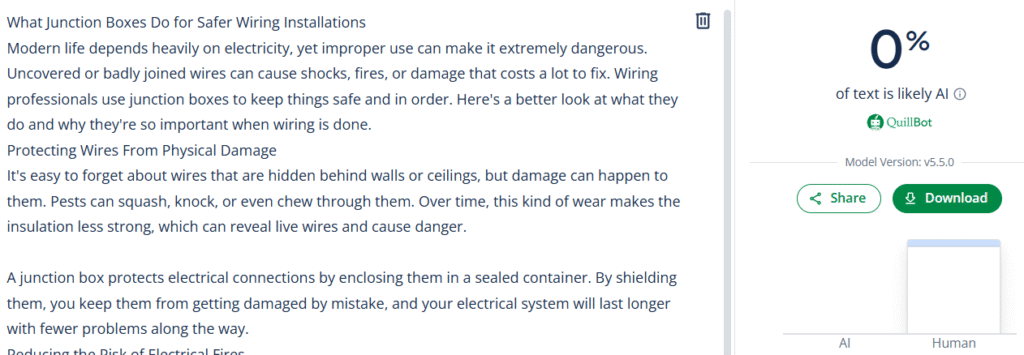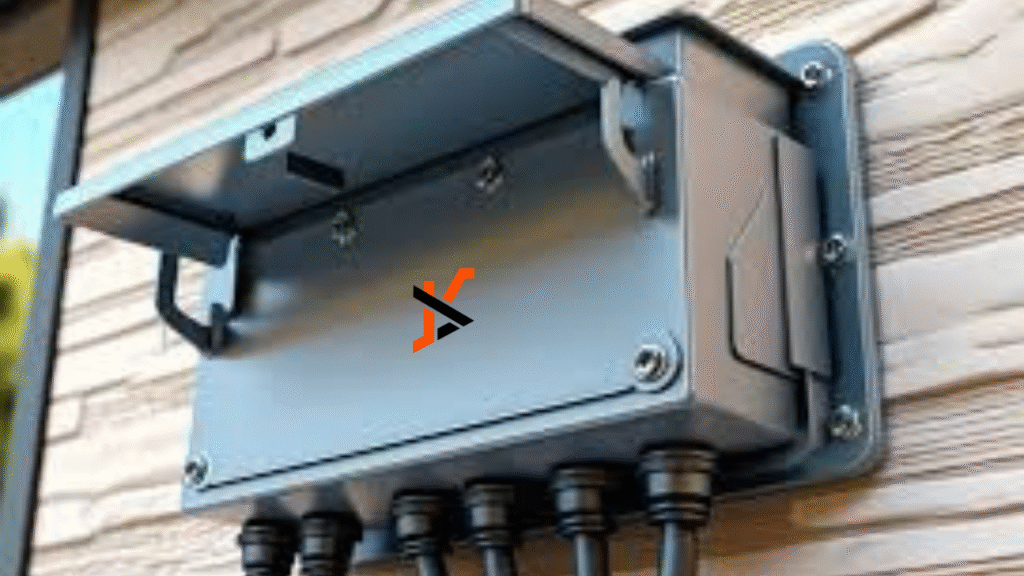Modern life depends heavily on electricity, yet improper use can make it extremely dangerous. Uncovered or badly joined wires can cause shocks, fires, or damage that costs a lot to fix. Wiring professionals use junction boxes to keep things safe and in order. Here’s a better look at what they do and why they’re so important when wiring is done.
Protecting Wires From Physical Damage
It’s easy to forget about wires that are hidden behind walls or ceilings, but damage can happen to them. Pests can squash, knock, or even chew through them. Over time, this kind of wear makes the insulation less strong, which can reveal live wires and cause danger.
A junction box protects electrical connections by enclosing them in a sealed container. By shielding them, you keep them from getting damaged by mistake, and your electrical system will last longer with fewer problems along the way.
Reducing the Risk of Electrical Fires
Hot wires, or wires left in the open air, can leave sparks behind when they touch wood, dust, or insulation. The resulting fire can quickly spread behind walls and in other areas you don’t see. Junction boxes trap these connections so they can’t catch fire. They do the same for sparks and heat, which greatly reduces the risk of a tiny wire issue starting a deadly inferno.
Making Inspections More Efficient
To not be dangerous, electrical systems must be often inspected. It may take a person a long time to find a single link if they are not organised.
Very frequently, inspectors and electricians have to trace lines through walls or ceilings to a connection where the line ceased working properly. Such a connection is much simpler to get at. You may get right to those joints if you are a professional while inspecting something.
Supporting Safer Repairs and Upgrades
Trying to correct the mess of wiring wrapped around itself or with exposed splices results in more headaches and risks. More problems mean more opportunities for shock, and the ambiguity of the wires encourages errors.
The junction box allows all connections to be made in a clean, confined region. More importantly, it gives electricians more power to get their work done properly. As a result, repairs are faster and improvements are more straightforward to add to the overall system.
Meeting Electrical Safety Standards
For one, not following this rule will not only be dangerous but can also lead to improper wiring. That could lead to fines or costly rework when inspections finally do arrive.
You can never have too much code-compliant equipment in your home, and by using these junction boxes, your wiring will comply from the start. Follow the guidelines to stay safe, avoid future issues, and have peace of mind that the system is secure. Property owners can rest assured.
Keeping Systems Organised and Reliable
Sloppy or bad wiring is not only ugly, but it’s also unsafe. Tangled connections make it impossible to see a problem and can lead to faults developing in the long run.
Using junction boxes helps keep wiring orderly and marked so that it can be traced to its destination. Essentially, keeping it neat makes it easier to clean and more consistent, so future repairs are faster.
Why Safe Wiring Depends on Junction Boxes
They are not large, insignificant side boxes; they play a huge part in safety and reliability as well. More secure wiring begins with more secure connections. For anyone building, updating, or fixing an electric system, it’s a critical part of the process to help protect people and property.


